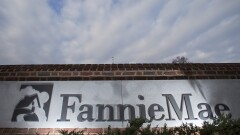Readers debate the odds of legislative reform to Fannie Mae and Freddie Mac, consider the growing problem of "friendly fraud," weigh ways to avoid reputation problems and more.

"Preach it, Brother Ryan!!! Hope those boys and girls on the Hill--everyone one of whom has some small banks and lenders in their states or congressional districts--hear what you say and understand why you mean. It's easy to get blinded by all of those big bank campaign contributions, i.e. the interests behind most of the neutralize Fannie and Freddie proposals."
Related:

"Any financial institution that doesn't have a well run and well (internally) publicized whistle blower line / process has missed the first and single most effective conduct risk management procedure that there is."
Related:

"It’s hard to fix something that’s not really broken."
Related: The inconvenient truth for GSE reform plans

"Mergers of two credit unions can create economic value for members by eliminating redundant expenses and capturing other scale economies, the same way that bank mergers create value. And if there are no branch closures or staff layoffs, as suggested, how does a bank create value by acquiring a credit union?"
Related:

"The serious impediment to the resolution to certain fraud cases is the fundamental conflict between the concept of non repudiation of approved card transactions and regulatory mandates. Regulations by government and payment networks mandate that the consumer be made whole when fraud is claimed. That leaves card issuers and merchant acquirers playing a "charge-back game" in order to determine which of the two is to bear the loss."
Related:

"How about amending Regulation E to start? Negligence is simply not a factor in determining customer liability for unauthorized EFTs under Regulation E. If I write my PIN on my debit card and I leave my card at a restaurant, the bank's liable for the unauthorized charges? Crazy."
Related:

"It’s a sad day when it’s necessary to pass legislation to ensure protection for businesses that are protected by the Constitution."
Related:





